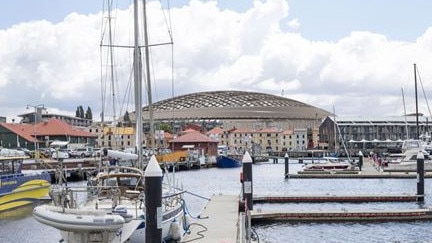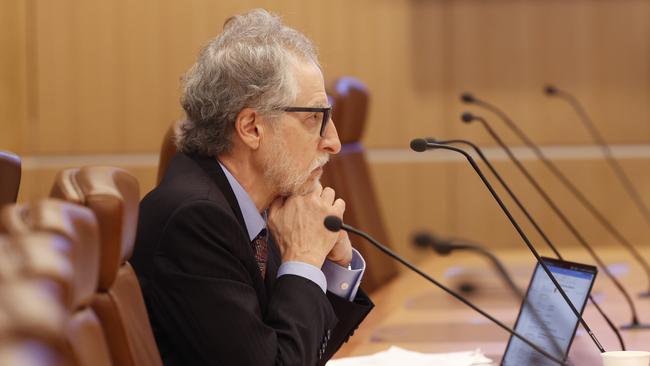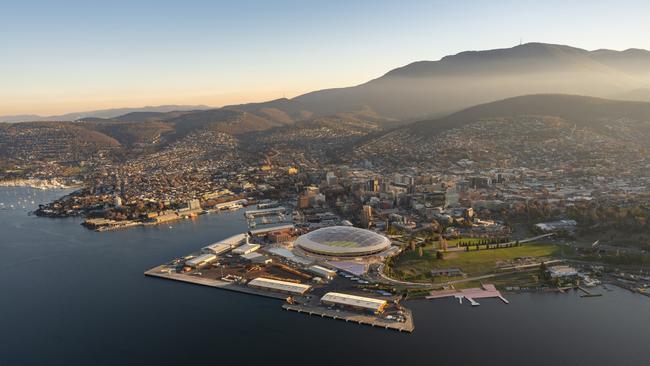Stadium economist Nicholas Gruen rejects Premier’s ‘bias’ claim
Ignoring problems identified with the proposed Macquarie Point stadium won’t make them go away, an eminent economist says. Why he has hit back at a ‘bias’ claim by Premier Jeremy Rockliff.

Tasmania
Don't miss out on the headlines from Tasmania. Followed categories will be added to My News.
Eminent economist Nicholas Gruen has rejected government attacks on his stadium report, saying that seeking input from all sides of a debate was a sign of independence, not bias.
Premier Jeremy Rockliff on Thursday said he did not have confidence in Dr Gruen’s report on the proposed Macquarie Point stadium or the Tasmanian Planning Commission’s draft Integrated Assessment Report, because they were tainted “by an apprehension of bias”.
Both reports found the cost of the stadium to be higher than its proponents have claimed, the benefits lower and identified a series of other unaddressed issues from visual impact to transport.

Dr Gruen’s comments came after it was revealed he met with stadium opponents prior to his appointment at the recommendation of the Jacqui Lambie Network — a condition of their power-sharing deal with the minority Liberals.
The meetings were not recorded in early versions of his report, but were added later.
In a statement read in state parliament on Thursday night by independent MP Kristie Johnston, Dr Gruen said canvassing the views of a wide range of people was not considered a radical approach elsewhere.
“It is not only unremarkable for reviewers to consult with stakeholders with strong and diverse views — it is expected,” he said.
“It is also normal for this to occur before specific terms of reference have been announced. “Since I sat on the Productivity Commission in the mid 1990s, I have done this with other Commissioners and independent reviewers as a matter of course on numerous previous reviews.

“Indeed, once I was being considered as the reviewer, I often asked people I met for their views on the subject. If you ask any Productivity Commissioner or, indeed, Tasmania’s Saul Eslake, you will find this is entirely normal.
“It would never occur to anyone familiar with our trade that conversations regarding the subject of the inquiry would compromise the independence of an inquiry, including before terms of reference are finalised.”
Dr Gruen said even if his report was disregarded, it would not change the fundamentals of the TPC report.
“Most of the discrepancy between the TPC’s conclusions on project cost and the KPMG modelling directed by the government was driven by their own independent analysis.
“If you took all the figures it took from my report and substituted KPMG’s estimates, their benefit cost ratio rises by just three cents in the dollar.”
He said ignoring problems raised with the stadium project would not make them go away.
“Tasmania deserves a decision-making process in which political leaders seek the public interest informed by genuinely independent analysis — not one that sidelines inconvenient truths and undermines those who tell them,” he said.

“It would be foolish to suggest that decisions regarding the stadium should be based on technical analysis alone, without further recourse to the Tasmanian community.
“But Tasmania has had two independent messengers who have outlined problems that are still not being faced.”
The state government is considering enabling legislation to build the stadium in time to meet deadlines set in its deal with the AFL.
More Coverage
Originally published as Stadium economist Nicholas Gruen rejects Premier’s ‘bias’ claim





